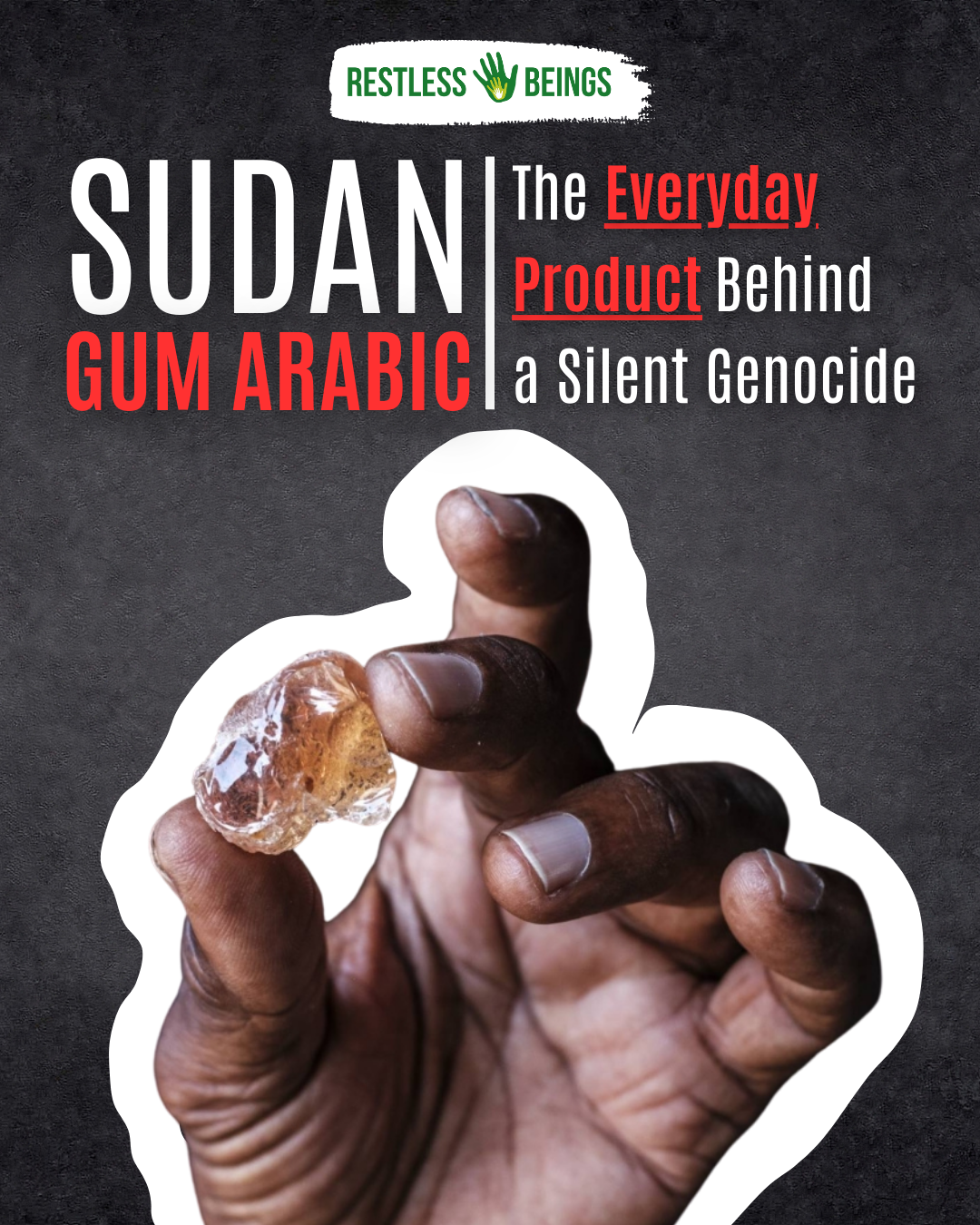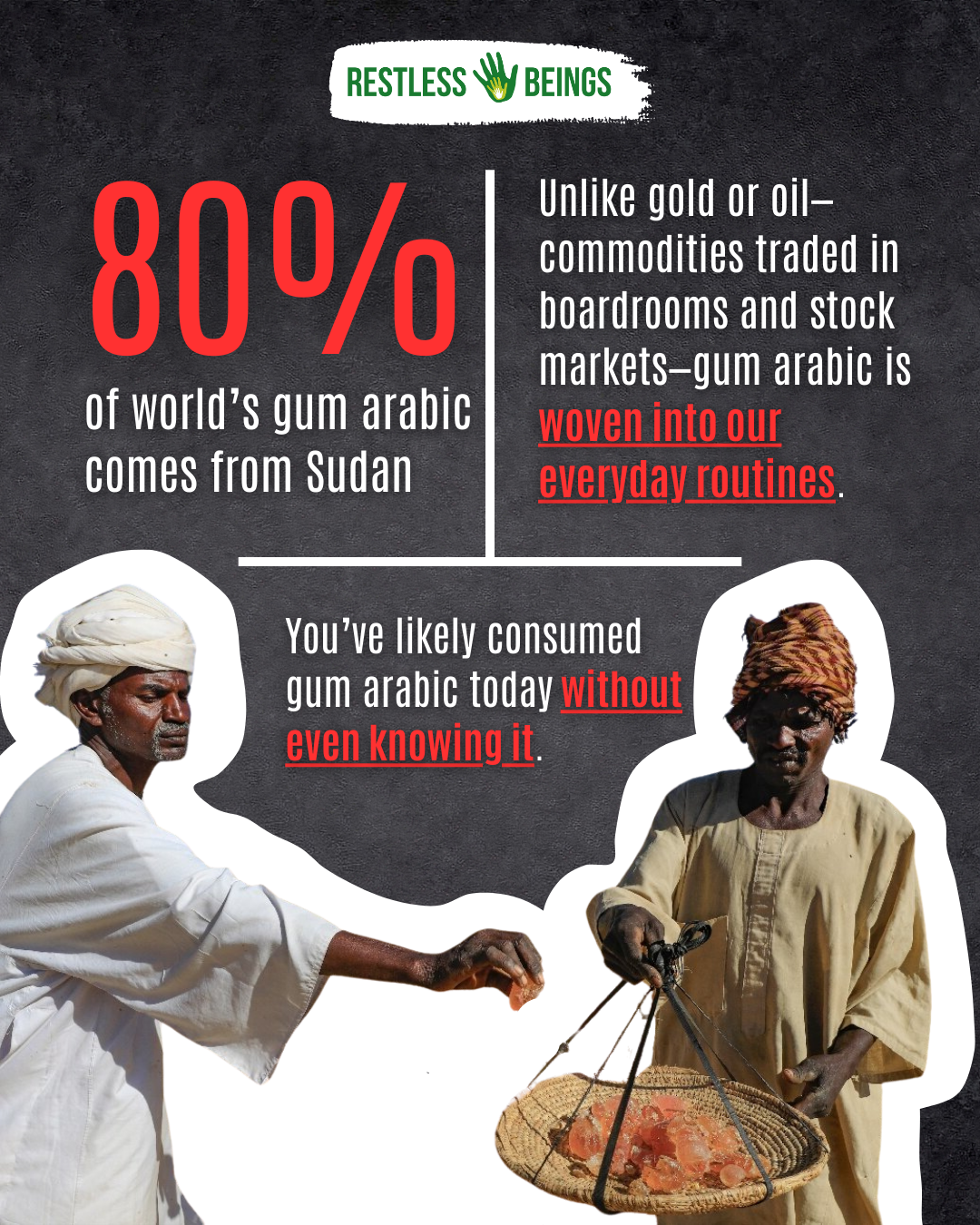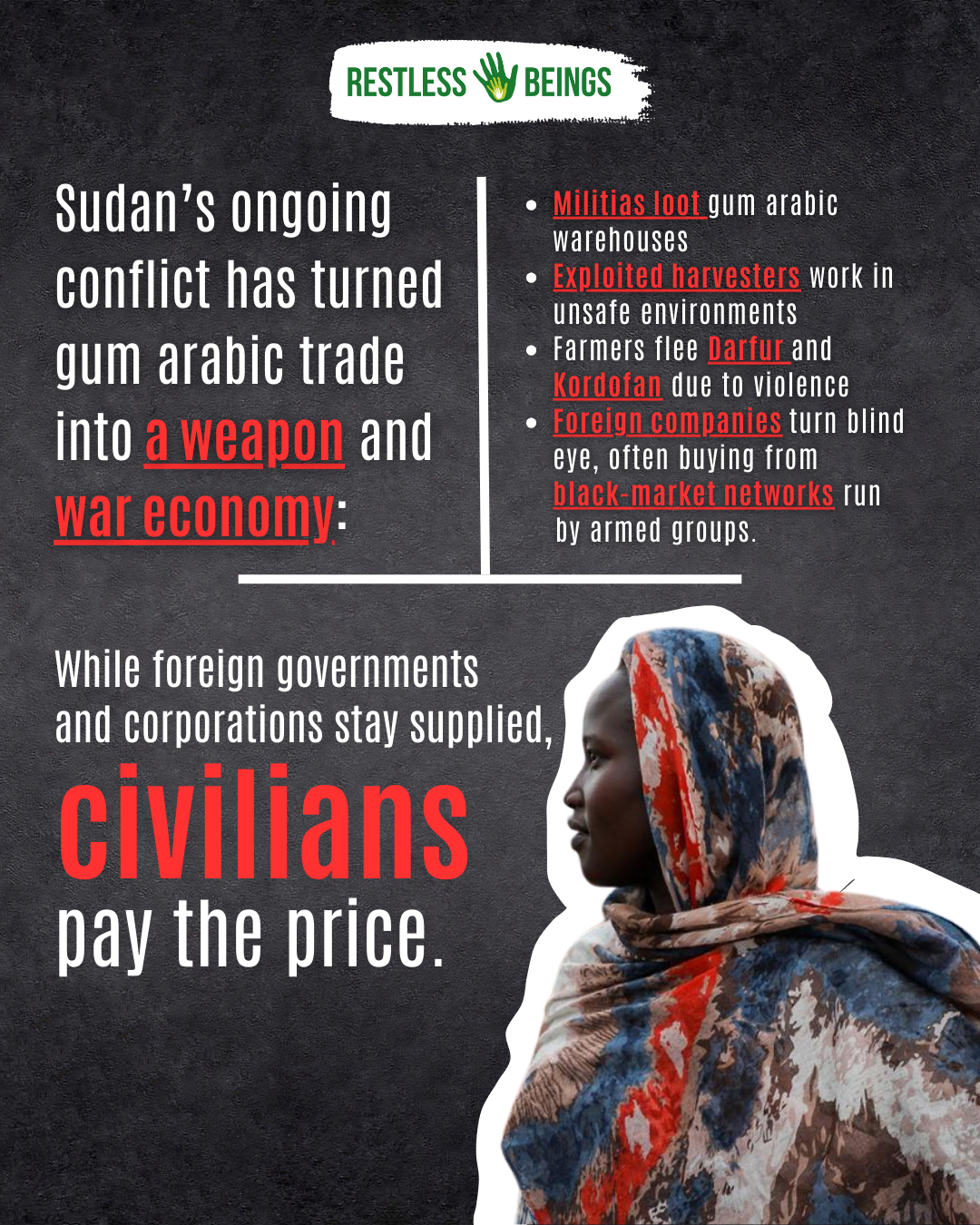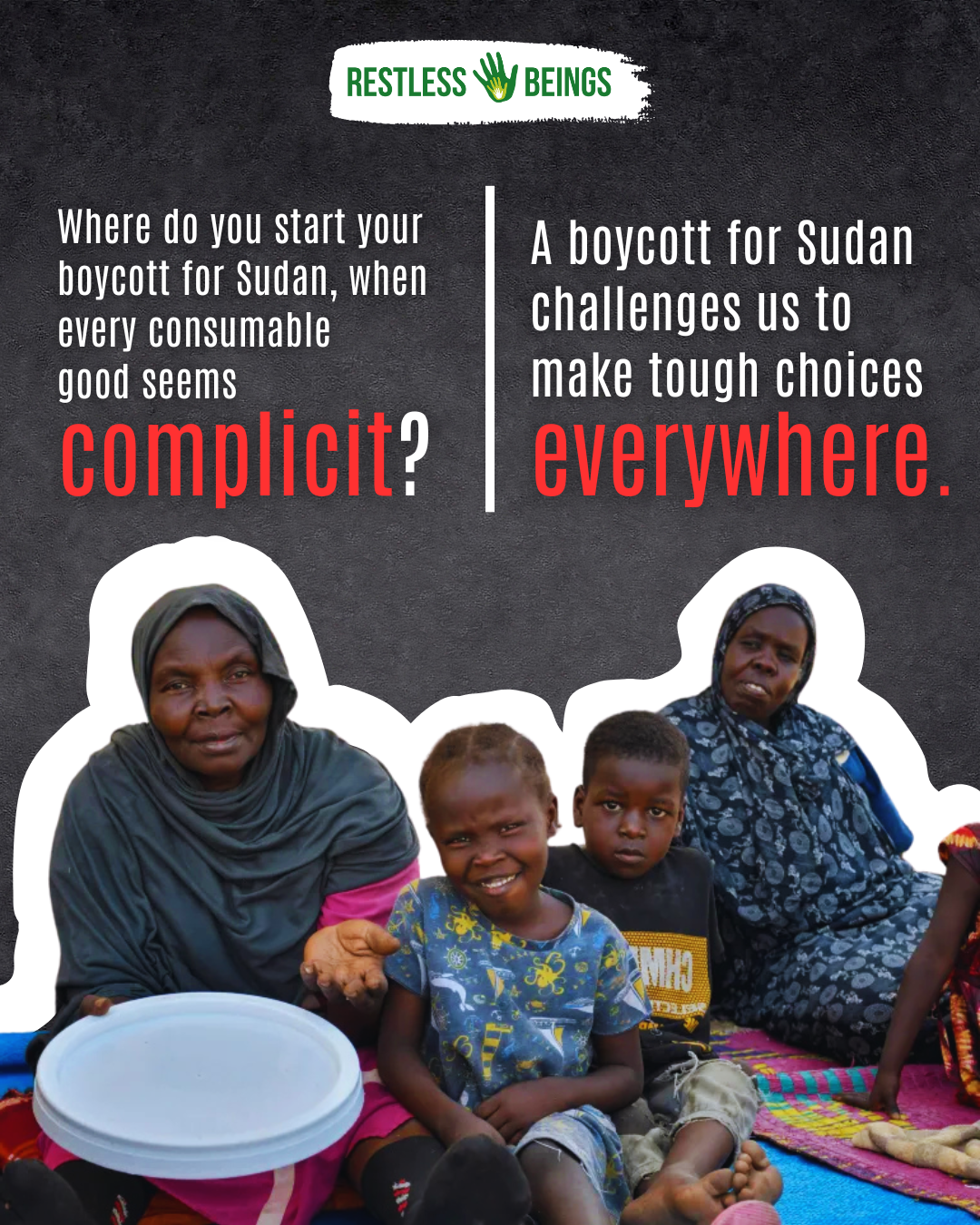


For two years, Sudan has been plunged into a catastrophic war between two rival military factions—the Sudanese Armed Forces (SAF) and the paramilitary Rapid Support Forces (RSF). What began as a power struggle has spiraled into a humanitarian crisis and escalated into full-blown genocide. Over 12 million people have been displaced, ethnic cleansing is underway in Darfur, and hunger stalks half the population. Yet, the world remains silent.
At the heart of this silence is an unexpected commodity: Gum Arabic. Tapped from Acacia trees in Sudan’s savannah regions, this golden sap is an invisible staple in our daily lives. It stabilizes soft drinks, keeps your ketchup from separating, and gives candy like M&Ms their glossy shell. It’s in cosmetics, pharmaceuticals, printing ink, and even the glue on envelopes.

Sudan supplies about 80% of the world’s gum arabic, making it one of the country’s most important exports and a critical ingredient in the global supply chain. In 2023, Sudan’s gum arabic exports sustained the country’s economy, valued at $141 million, with major importers including France, Germany, the United States, India, and the United Kingdom. North America and Europe collectively account for 45% of global consumption alone. The global market is projected to be valued at $417.21 million by year’s end.
Before the conflict, gum arabic was a lifeline for tens of thousands of Sudanese families, many of them smallholder farmers. It was one of the few industries where Sudanese people could earn a stable income independent of the state. Export revenues sustained local economies, supported education, and offered rural communities a measure of economic dignity despite decades of sanctions and instability. However, war has turned lifeline into liability and severely disrupted ethical production and trade.
Unlike gold or oil—commodities traded in boardrooms and stock markets—gum arabic is woven into our everyday routines. You may not handle crude oil or wear gold, but you’ve likely consumed gum arabic today without even knowing it. That pervasiveness is exactly why global powers are hesitant to intervene. Sudan’s liquid gold is not just a regional commodity—it’s the glue holding multinational products together. Disrupting that supply chain would ripple across industries, choke corporate profits, and inflate costs for everyday goods from soda to skincare.
And so, governments tiptoe. While civilians suffer, armed groups loot gum arabic warehouses and exploit harvesters, forcing them to work in unsafe and unregulated conditions. Farmers in Darfur and Kordofan have fled their land as militia violence spreads, and a once-thriving trade is now trafficked across borders via black-market routes. Foreign companies, desperate to maintain supply, are often complicit propping up the very networks prolonging the conflict.
Imagine if the gum arabic trade were interrupted entirely. Production lines would stall. Supermarket shelves would thin. Prices would soar. The global economy cannot afford a world without Sudan’s gum arabic—but why is it that Sudanese people must pay that price?

It’s a painful irony: the world chews the sweet but never tastes the suffering. Even as Sudan’s conflict escalates, there’s no viral campaign, no #Boycott list, no consumer roadmap. The Boycott, Divestment, and Sanctions (BDS) movement for Palestine has empowered individuals to hold complicit corporations accountable. But for Sudan—where gum arabic hides in nearly everything—where would one even begin?
Perhaps a Sudan-focused BDS movement would involve a comprehensive boycott list targeting companies heavily reliant on Sudanese gum arabic. However, given the ingredient’s pervasiveness, such a campaign would require full transparency and cooperation from corporations and consumers alike. Is it feasible to trace and boycott every product containing gum arabic? Or does the complexity of global supply chains render such efforts impractical?
The problem is not just invisibility, but entanglement. Sudan’s gum arabic is so deeply woven into the fabric of global capitalism that demanding change feels next to impossible. But that is exactly what makes the question urgent. Every product we consume, every purchase we make, every glossed-over ingredient label is a missed opportunity to ask: At what cost?
If the acacia trees of Sudan could speak, they might not plead for profit or protection, but for peace. Until then, we must learn to see beyond the barcode—to recognize that behind the sweet gloss of consumer goods lies a bitter truth we can no longer afford to ignore.
